Saint John Baptist de La Salle, Patron of Teachers and Educators, pray for us as we strive to guide and inspire young minds. Help us to be patient, compassionate, and faithful in our mission of education. May we follow your example of service, humility, and dedication, and always seek to lead with love and wisdom. Amen.
ST. JOHN OF BAPTIST DE LA SALLE
ST. JOHN OF BAPTIST DE LA SALLE
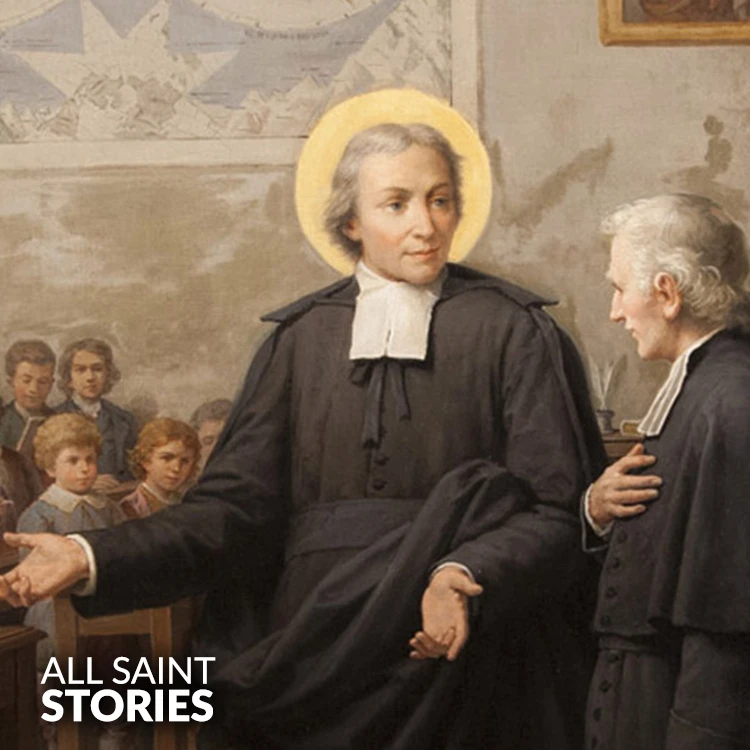
St John Baptist de La Salle, born in 1651 in France, dedicated his life to the education of poor children. Despite challenges, he founded the Institute of the Brothers of Christian Schools, revolutionizing education by promoting instruction in the vernacular, teacher training, and grouping students by ability. His commitment to faith-based education shaped modern pedagogy. Canonized in 1900, he was later named the patron saint of teachers in 1950. His legacy continues in Catholic schools worldwide, emphasizing discipline, simplicity, and service to the underprivileged.
St John Baptist de La Salle was born on April 30, 1651, in Reims, France, into a wealthy and devout family. From an early age, he demonstrated strong faith and intellectual aptitude. At 16, he was appointed a canon of the cathedral in Reims, a prestigious role that indicated a promising ecclesiastical career. However, his life took a transformative turn when he was ordained a priest at the age of 27. His encounter with the educational needs of the poor ignited a passion that would define his life’s work.
During the late 17th century, France was plagued by war, famine, and social upheaval. The prevailing religious climate was influenced by Jansenism, a doctrine that emphasized humanity's inability to resist sin without divine grace. These challenges exacerbated the struggles of the lower classes, particularly in the area of education. Many children, especially the poor, had little to no access to formal schooling. Seeing this dire need, De La Salle devoted himself to creating schools that would provide free education to underprivileged children in Reims.
In 1680, he began gathering and training teachers, providing them with not only pedagogical guidance but also food, shelter, and financial support. His commitment to their welfare laid the foundation for what would become the Institute of the Brothers of Christian Schools. This organization emphasized discipline, simplicity, and total reliance on divine providence. Despite resistance from both secular and clerical authorities, De La Salle persisted in his mission.
One of his most revolutionary contributions to education was the introduction of "simultaneous instruction." Unlike the traditional method of tutoring students individually, he grouped students by ability, making education more efficient and accessible. He also championed teaching in the vernacular rather than Latin, making learning more practical and engaging for young students. In addition to primary education, he established teacher-training centers, boarding schools, and vocational academies for working-class youth. His innovative methods laid the foundation for modern education.
St John Baptist de La Salle was also a prolific writer. He authored several works on pedagogy, religious instruction, and Christian conduct, offering clear and practical approaches to teaching and moral formation. His insights into education went beyond academics, emphasizing character development, faith, and service.
Despite facing significant opposition and personal hardships, including being temporarily removed from his leadership position, De La Salle remained steadfast in his mission. His unwavering trust in God and deep humility kept him devoted to the cause of education until his death on April 7, 1719.
His legacy continued through the Brothers of Christian Schools, which expanded beyond France, spreading his educational principles worldwide. Recognizing his immense contribution to education and the Church, Pope Leo XIII canonized him in 1900. Fifty years later, in 1950, Pope Pius XII declared him the patron saint of teachers.
Today, his influence is seen in thousands of schools, colleges, and educational institutions across the globe. His vision of accessible, faith-based education for the poor remains an inspiration, demonstrating that education is not just about knowledge but about forming individuals committed to faith, service, and community.
Video Not Found
The information on this website is compiled from various trusted sources. While we aim for accuracy, some details may be incomplete or contain discrepancies.
If you notice any errors or have additional information about this saint, please use the form on the left to share your suggestions. Your input helps us improve and maintain reliable content for everyone.
All submissions are reviewed carefully, and your personal details will remain confidential. Thank you for contributing to the accuracy and value of this resource.
Credits & Acknowledgments
- Anudina Visudhar (Malayalam) – Life of Saints for Everyday
by Msgr. Thomas Moothedan, M.A., D.D. - Saint Companions for Each Day
by A. J. M. Mausolfe & J. K. Mausolfe - US Catholic (Faith in Real Life) – Informational articles
- Wikipedia – General reference content and images
- Anastpaul.com – Saint images and reflections
- Pravachaka Sabdam (Malayalam) – Saint-related content and insights
We sincerely thank these authors and platforms for their valuable contributions. If we have unintentionally missed any attribution, please notify us, and we will make the correction promptly.
If you have any suggestion about ST. JOHN OF BAPTIST DE LA SALLE
Your suggestion will help improve the information about this saint. Your details will not be disclosed anywhere.
© 2026 Copyright @ www.allsaintstories.com

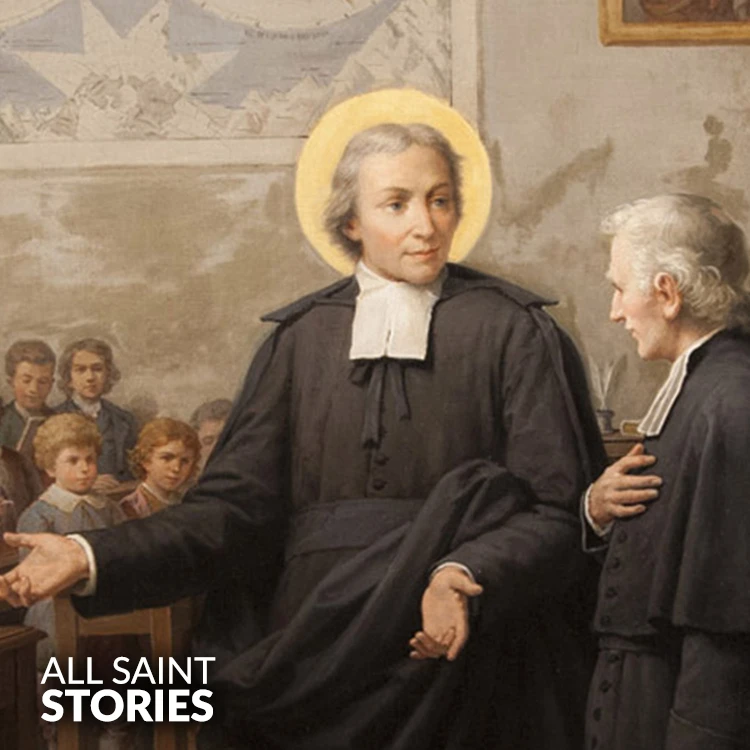
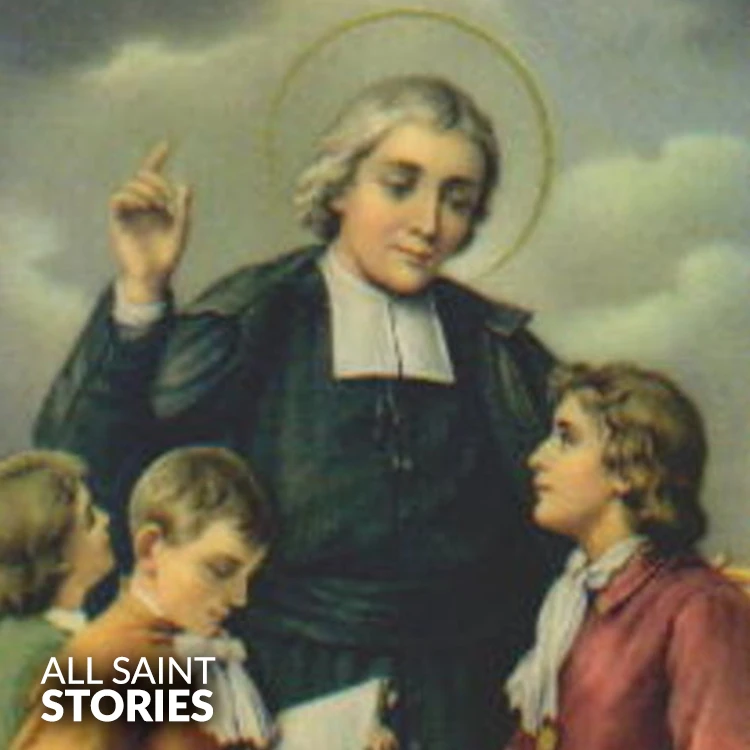
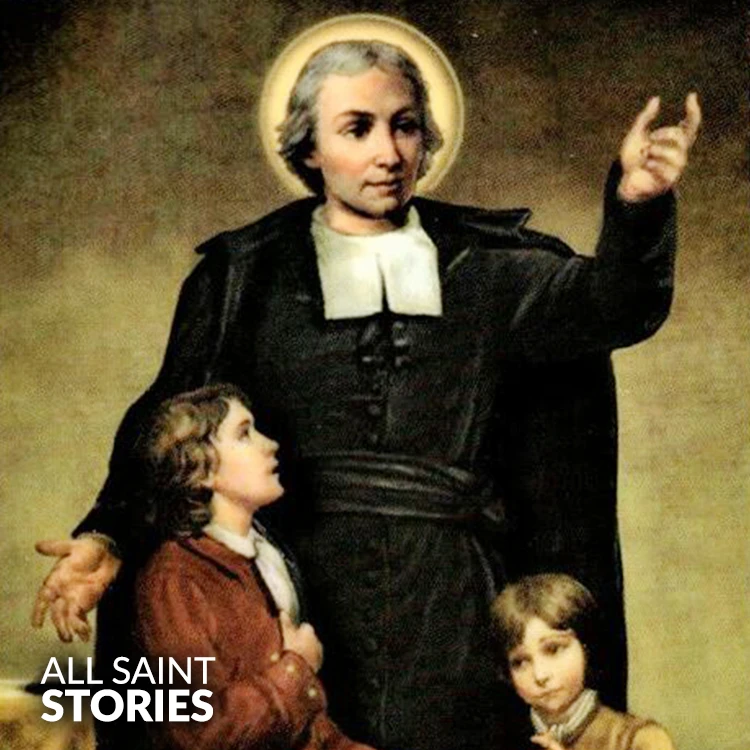
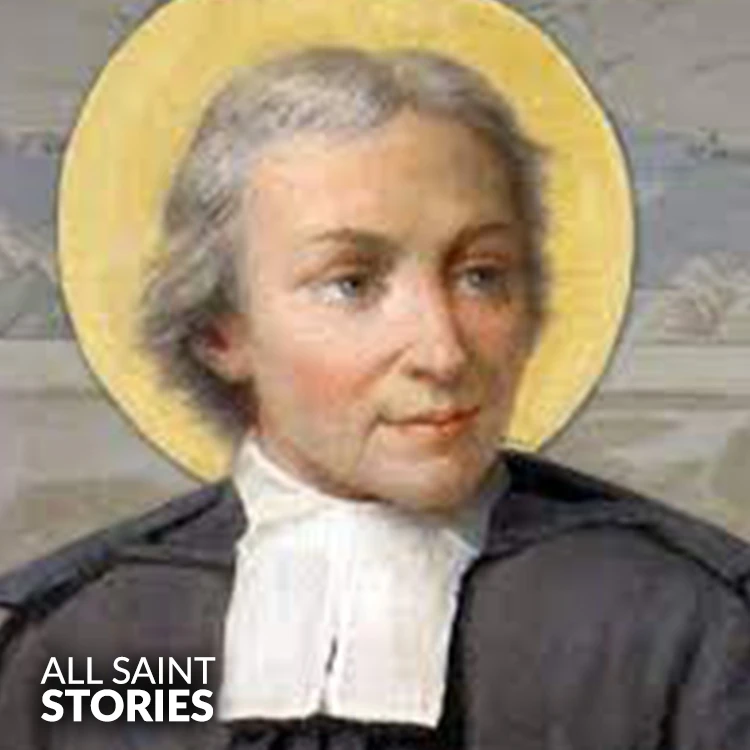

 English
English
 Italian
Italian
 French
French
 Spanish
Spanish
 Malayalam
Malayalam
 Russian
Russian
 Korean
Korean
 Sinhala
Sinhala
 Japanese
Japanese
 Arabic
Arabic
 Portuguese
Portuguese
 Bantu
Bantu
 Greek
Greek
 German
German
 Dutch
Dutch
 Filipino
Filipino